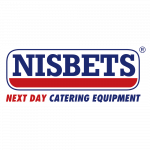The famous opening scene of Tarantino’s classic film Reservoir Dogs focuses on three characters in a diner debating the topic of tipping in restaurants, and whether their waitress warranted hers. Whilst one character says he doesn’t believe in tipping at all, they all agree that taxing tips just doesn’t seem fair.
Unfortunately, just like any other form of income, tips, gratuities and service charges are all subject to tax laws. And, even if you do get tipped by a customer, your employer isn’t obliged to let you keep the money or distribute it among staff at all. But it also doesn’t mean an employer can use them to top up wages to meet the National Minimum Wage.
Alex Skinner is a hospitality accountancy specialist at Perrys Chartered Accountants. Here, he answers some frequently asked questions about tipping and tax, and provides his advice on simplifying the process.
Do I really need to pay tax on my tips?
Sadly, the answer to this question is most definitely ‘yes’. Whether your tip is given to you as cash in hand or it is paid electronically by the customer, all tips are subject to Income Tax. Depending on the type of tip and how it is distributed, you may also have to pay National Insurance contributions too.
Are tips and service charges the same thing?
No. Service charges are added to the bill before it’s given to the customer. If a service charge is a compulsory payment, it won’t be classed as a tip and will be treated in the same way as your wages.
However, if a customer chooses to pay the charge voluntarily, the same rules will apply to those for tipping.
How is tax on my tips worked out?
It all depends on how you receive the tip as to which taxes will apply. It’s important to establish who will be responsible for making sure the tax is paid – otherwise you could end up over-paying tax, or, even worse, being fined.
For example, if you are given cash tips directly by customers, it will be down to you to make sure you declare these in a Self Assessment tax return. If you don’t do this, then HMRC will estimate your tips on your behalf based on information supplied by you and your employer.
However, if an employer pays you tips directly, different rules will apply.
What happens if a customer tips using a card or cheque?
Any tips that are paid electronically can be added to your pay by your employer. If your employer chooses to do this, they will be responsible for making sure your Income Tax is paid. However, the bad news is, any tips paid directly by your employer, including cash tips that are collected on your behalf, will also incur additional tax in the form of National Insurance contributions.
What happens if tips are pooled together and shared out?
This is called a ‘tronc’ payment and it’s a great way to simplify the tipping process and make paying tax easier. However, there are some rules and possible pitfalls to administering such a system that you should be aware of. The good news is that whilst Income Tax still needs to be paid on a tronc system, the scheme is exempt from National Insurance contributions.
To set up a tronc, you first need to find somebody who is willing to be appointed as a ‘troncmaster’ – this is often an employee. The troncmaster takes responsibility for collecting all staff tips and service charges into a central pot and making sure they are distributed to staff.
The troncmaster will need to decide how tips are shared out – usually through a consultation process with other staff members. Bear in mind this could mean some tough decision making, such as who should and shouldn’t receive tips and whether they are divided equally. The troncmaster will also be responsible for making sure the staff are paid their money, which is usually done via the payroll. Companies are allowed to deduct money for administrative costs – such as card fees – but many will absorb the costs and distribute 100% of tips to staff.
Whichever method a company chooses to distribute tips, it’s always wise to consult a professional, such as a specialist accountant, to ensure you are complying with any tax regulations.



